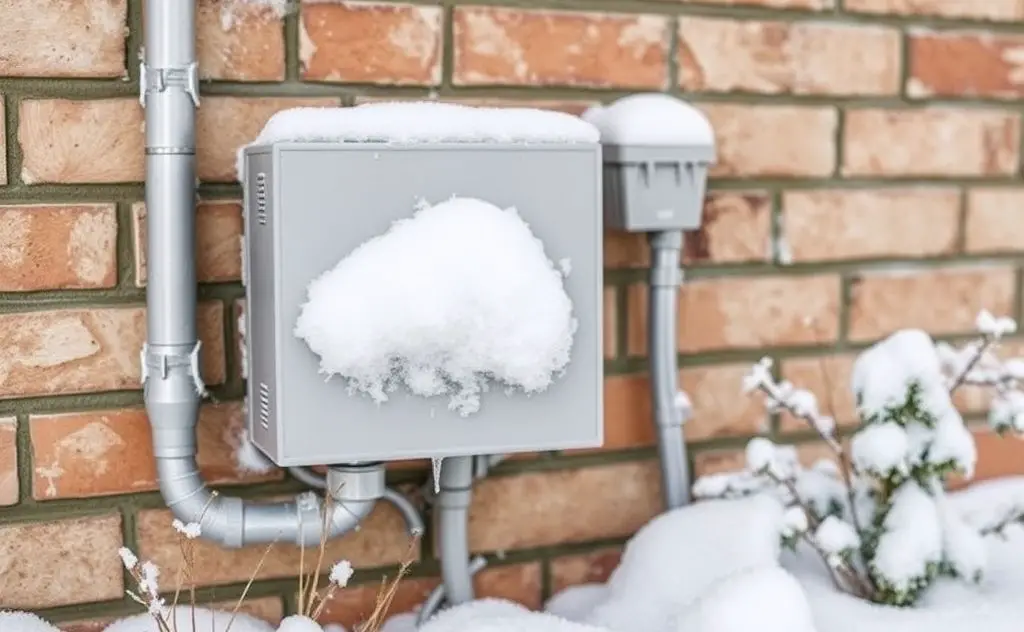To prevent your HVAC from freezing in winter, ensure proper insulation, maintain consistent thermostat settings, and schedule regular maintenance checks.
Winter brings unique challenges for HVAC systems. Freezing temperatures can cause ice buildup, reduced efficiency, and even complete system failure. Understanding how to protect your HVAC unit during cold months ensures reliable heating when you need it most.

Why HVAC Systems Freeze In Winter
HVAC freezing occurs when moisture on the evaporator coils turns to ice. This typically happens due to:
- Restricted airflow from dirty filters or blocked vents
- Low refrigerant levels
- Malfunctioning defrost cycles
- Extreme outdoor temperatures below freezing
According to U.S. Department of Energy, proper maintenance can prevent 90% of HVAC freezing issues.

7 Proven Ways To Prevent HVAC Freezing
1. Maintain Proper Airflow
Restricted airflow is the leading cause of HVAC freezing. Ensure:
- Replace air filters monthly during winter
- Keep all vents open and unobstructed
- Clear snow and debris from outdoor units
For optimal performance, consider upgrading to a high-efficiency air filter designed for winter conditions.
2. Check Refrigerant Levels
Low refrigerant causes coils to become too cold. Signs of low refrigerant include:
| Symptom | Solution |
|---|---|
| Hissing sounds | Professional recharge |
| Ice on refrigerant lines | Leak detection and repair |
3. Insulate Exposed Components
Protect vulnerable parts with insulation:
- Wrap refrigerant lines with foam insulation
- Install a thermostat-controlled heat cable on pipes
- Use weatherproof covers for outdoor units
4. Maintain Proper Thermostat Settings
Set your thermostat to:
- Maintain at least 55°F when away
- Avoid drastic temperature changes
- Use “emergency heat” setting during extreme cold
5. Schedule Professional Maintenance
Annual HVAC checkups should include:
- Refrigerant pressure checks
- Defrost cycle testing
- Blower motor inspection
- Electrical component evaluation
6. Improve Home Insulation
Better insulation reduces HVAC workload:
- Add weatherstripping to doors/windows
- Insulate attics and crawl spaces
- Consider double-pane windows
The EPA recommends proper insulation can improve HVAC efficiency by 15-20%.
7. Install Freeze Protection Devices
Specialized equipment can prevent freezing:
- Low ambient controls
- Crankcase heaters
- Fan cycle controls
What To Do If Your HVAC Freezes
If you notice ice buildup:
- Turn off the system immediately
- Switch to emergency heat mode
- Allow 24 hours for complete thawing
- Check filters and vents
- Call a professional if problem persists
Never attempt to chip away ice or pour hot water on frozen components – this can cause permanent damage.
Long-Term Prevention Strategies
For reliable winter performance:
- Consider upgrading to a cold-climate heat pump
- Install a supplemental heating system for extreme cold
- Implement smart thermostat controls
- Create a maintenance schedule with your HVAC technician
Proper winterization protects your investment and ensures comfort throughout the coldest months. Regular maintenance and these preventive measures will keep your HVAC system running efficiently when you need it most.
